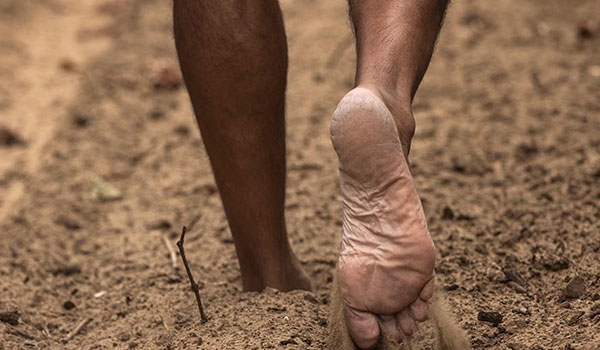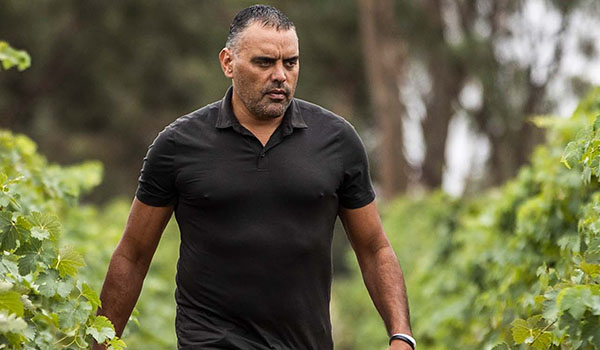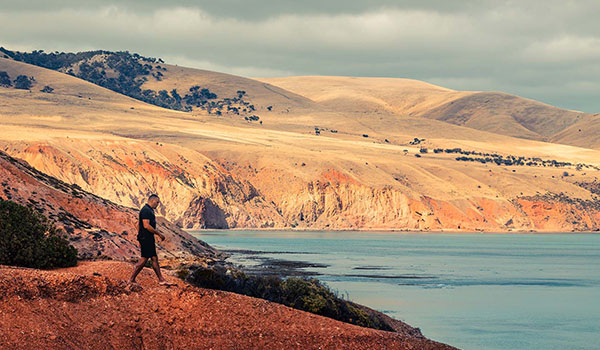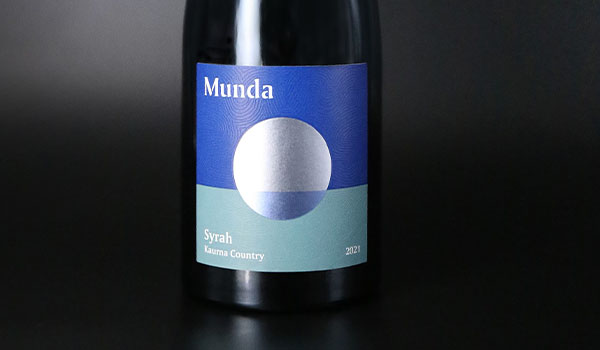Ned Goodwin MW shares his thoughts on Munda Wines
Ned Goodwin MW shares his thoughts on Munda Wines.
Munda is a dynamic initiative to repatriate the western concept of terroir to the essence of our ancient land and its original vector, Australia’s indigenous civilisation and our First Nation’s People. Munda is overseen by co-owner, Wirangu and Kokotha man Paul Vandenbergh, with majority indigenous investment at its core.
Munda is the Wirangu word for land, meaning the holistic confluence of soil structure, topography and climate, among the many attributes of the environment that contribute to a wine’s provenance, or stamp of place. In Australia there are more than 500 indigenous countries, each with a unique Munda that has been articulated by 2000 generations and 250 different languages, all felicitous to place-flora, fauna and respective peoples-for over 80,000 years. As felicitous to place was fermentation, a process intrinsic to First Nations culture. Munda’s efforts are an intuitive continuum from the effervescent cider-like drink, a natural alcoholic ferment derived from eucalyptus sap, that First Nations ancestors enjoyed for thousands of years.

Munda is the culmination of complex binds to many countries, their identities and the litany of prodigious cultures steeped in specific regionalities. Munda's wines serve as a liquid narrative: stories that are as important today as they were in the past.
Stories of Munda
Munda’s goal is to explore these stories and to articulate them as wine, the final iteration of terroir, as much as an acknowledgement of place and the fashion in which our environment sustains us. Vandenbergh opines that “In winemaking, the importance of the ground, of land, is really critical. But Munda is broader than that. It’s also about recognising and acknowledging Country.”
Munda’s goal is to explore these stories and to articulate them as wine, the final iteration of terroir, as much as an acknowledgement of place and the fashion in which our environment sustains us. Vandenbergh opines that “In winemaking, the importance of the ground, of land, is really critical. But Munda is broader than that. It’s also about recognising and acknowledging Country.”
To achieve this goal Munda collaborates with judiciously chosen winemakers that exhibit sleight of hand and artisanal credence, manifest as a deep respect for Munda and the capacity to adapt to the chameleonic nature of the countries where they toil. This reflects the ebbs and flows of Munda and the visceral First Nations comprehension of them. The results are fresher wines born of low environmental impact, astute experimentation and stylistic paradigms that are often far from regional stereotypes, auguring well in the face of a warmer planet. Fermentations are natural, oak is neutral, sulphur-dioxide additions are considered and bottling is early, all in aid of promoting brightness and the transparency and evocations of the land, or Munda. In essence, Munda wines are in harmony with their inherent components as much as their surrounds.

Rather than the conventional Geographic Indicator (GI), a wine’s provenance is cited as its respective country, be it Kaurna (northern McLaren Vale, including Blewitt Springs) and Ngadjuri + Peramangk Countries (Barossa/Eden Valley), for example. These are the Munda of the two cuvées to date, a Syrah and Grenache that reflect Vandenbergh’s south-western South Australian origins, with initial volumes of 9,000 and 6,000 bottles respectively. The Syrah was crafted in collaboration with Chalk Hill, while the Grenache was hewn at the Cirillo stable. The market focus leans toward high quality on-trade and select fine wine retailers, including Langton’s. As these first wines evolve, the initiative will nurture further collaborations with the goal to express other Munda, as different wines, each with its country and unique regionality similarly recognised on the front label.
Yet Munda is the first to acknowledge that the narrative demands greater indigenous involvement. Munda recognises the paucity of First Nations activity in the wine landscape. For this reason, Munda is working with the Tjindu Foundation to shift the paradigm. The Tjindu Foundation is an Aboriginal owned not-for-profit South Australian business registered with the Australia Charities and Not-for-Profit Commission. The Foundation works to support educational, cultural and sporting activities in remote communities. Additionally, the Foundation is a part of the Industry Advocate as a registered Aboriginal owned business promoting positive long-term change among First Nations youth. Collaboratively, the goal is to encourage First Nations people to enter the wine world and to share the success and dynamism of the domestic industry at large. Munda has committed to actively engaging with its partners to cultivate opportunities for students in the Tjindu Academy, with the ideal of fostering indigenous involvement across all facets of crafting wine and developing practical pathways to sustaining this involvement in the future.

Vandenbergh and partner, wine industry veteran Damien Smith, have already identified key young Indigenous people working in McLaren Vale and Victoria who they intend to support and mentor through their nascent hospitality and wine careers. They are also in discussion with the Wine and Spirit Education Trust about developing a wine program together with the National Indigenous Culinary Institute in Sydney, while discussing avenues to creating indigenous scholarships in wine studies with the University of Adelaide. Notably, these will be incorporating studies of indigenous fermentation practises. Smith notes “Our goal is that five years down the line, we’ll have an indigenous senior winemaker for the Munda brand. That’s where we want to be.”

Munda Syrah Kaurna Country McLaren Vale 2021
Indeed, the future will be even brighter once indigenous craftspeople are versed in the scientific applications of making wine and become familiar, too, with the nuances of the world’s best wine regions and the fashions in which their terroirs are articulated. Munda’s vision is as long-term as the indigenous civilisation is robust. We can only look forward to what lies in store.